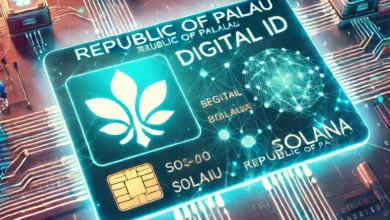Bitcoin Miners Facing an Identity Crisis Amid AI Acquisitions

The landscape of Bitcoin mining is experiencing a transformative phase as the industry grapples with significant challenges and opportunities. Among these, the integration of artificial intelligence (AI) is emerging as a pivotal factor, reshaping the identity and operations of Bitcoin miners. This article delves into the evolving dynamics of the Bitcoin mining industry, exploring the impact of AI acquisitions and the broader implications for the sector.
The Traditional Bitcoin Mining Landscape
Bitcoin mining, the process of validating transactions and securing the blockchain network, has long been dominated by specialized hardware and immense computational power. Miners solve complex mathematical puzzles to add new blocks to the blockchain, earning Bitcoin rewards in return. This energy-intensive process has led to the establishment of large mining farms, often located in regions with low electricity costs.
Historically, the primary focus of Bitcoin miners has been on optimizing hardware efficiency and reducing operational costs. This focus has driven advancements in mining technology, from the early days of CPU and GPU mining to the current era of Application-Specific Integrated Circuits (ASICs). However, as the industry matures and faces increasing scrutiny over environmental concerns, miners are seeking innovative ways to remain competitive and sustainable.
The Emergence of AI in Bitcoin Mining
The integration of AI into Bitcoin mining represents a significant shift in the industry’s approach to efficiency and innovation. AI technologies, particularly machine learning algorithms, can analyze vast amounts of data to optimize mining operations, predict market trends, and enhance security measures. By leveraging AI, miners can achieve greater operational efficiency, reduce energy consumption, and improve profitability.
One of the key areas where AI is making an impact is in predictive maintenance. Mining equipment operates under extreme conditions, and any downtime can result in substantial financial losses. AI-powered predictive maintenance systems can analyze data from sensors embedded in mining hardware to predict failures before they occur, allowing for proactive maintenance and minimizing downtime.
Moreover, AI can optimize energy consumption by dynamically adjusting mining operations based on real-time data. This capability is crucial as energy costs constitute a significant portion of mining expenses. By reducing energy consumption, miners can lower their carbon footprint and address environmental concerns, which have become increasingly prominent in recent years.
AI Acquisitions: A Strategic Move
In response to the growing importance of AI, several prominent Bitcoin mining companies are making strategic acquisitions to bolster their AI capabilities. These acquisitions reflect a broader trend of convergence between the cryptocurrency and AI industries, highlighting the potential synergies between the two sectors.
For instance, notable acquisitions include the purchase of AI startups by leading mining firms. These startups specialize in developing AI algorithms tailored for mining operations, providing the acquiring companies with a competitive edge. By integrating AI expertise, mining companies can enhance their technological capabilities and drive innovation in the industry.
Such acquisitions also underscore the strategic importance of AI in the future of Bitcoin mining. As competition intensifies and regulatory pressures increase, companies that can leverage AI effectively will be better positioned to navigate the evolving landscape. This trend is indicative of a broader shift towards the digital transformation of the mining industry, where technology and data play a central role in driving operational excellence.
Challenges and Opportunities
While the integration of AI presents significant opportunities, it also poses challenges for Bitcoin miners. One of the primary challenges is the need for substantial investment in AI technology and expertise. Developing and implementing AI solutions requires significant financial resources, which may be a barrier for smaller mining operations.
Additionally, the ethical and regulatory implications of AI in mining must be considered. As AI systems become more integrated into mining operations, issues related to data privacy, security, and transparency will need to be addressed. Ensuring that AI algorithms are fair, unbiased, and compliant with regulatory standards is crucial for maintaining trust and legitimacy in the industry.
Despite these challenges, the potential benefits of AI integration are substantial. By harnessing the power of AI, Bitcoin miners can achieve greater efficiency, reduce operational costs, and enhance sustainability. Moreover, AI can enable miners to better navigate market volatility and make informed decisions based on data-driven insights.
The Future of Bitcoin Mining
The convergence of AI and Bitcoin mining signifies a new era for the industry. As miners embrace AI technologies, the traditional identity of Bitcoin mining is evolving, characterized by greater technological sophistication and innovation. This transformation is likely to accelerate as the industry continues to mature and adapt to changing market dynamics.
Looking ahead, the future of Bitcoin mining will be shaped by several key trends. First, the adoption of AI will become more widespread, with an increasing number of mining companies investing in AI capabilities. This trend will drive further advancements in mining efficiency and sustainability, contributing to the overall resilience of the Bitcoin network.
Second, the regulatory landscape will play a critical role in shaping the future of Bitcoin mining. Governments and regulatory bodies are becoming more attentive to the environmental impact of mining operations. Miners that proactively adopt AI to reduce their carbon footprint and enhance transparency will be better positioned to navigate regulatory challenges and build positive relationships with stakeholders.
Third, collaboration and partnerships between the cryptocurrency and AI industries will become more common. As AI technology continues to evolve, mining companies will seek to collaborate with AI experts and startups to stay at the forefront of innovation. These partnerships will foster a culture of continuous improvement and drive the development of cutting-edge solutions for the mining industry.
The integration of AI into Bitcoin mining represents a transformative shift that is reshaping the industry’s identity. As miners navigate the challenges and opportunities presented by AI, they are laying the foundation for a more efficient, sustainable, and technologically advanced future. The strategic acquisitions of AI startups by leading mining companies underscore the importance of AI in driving innovation and maintaining competitiveness.




